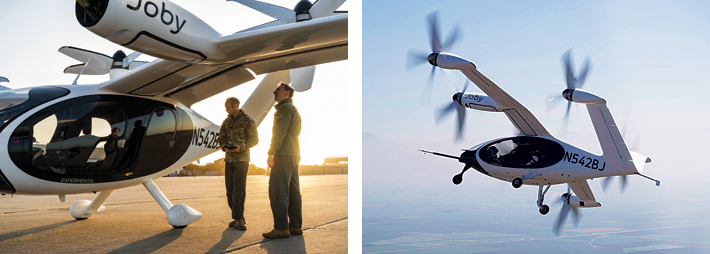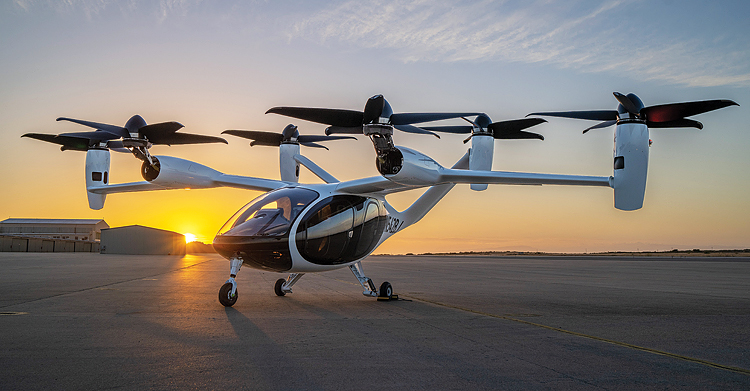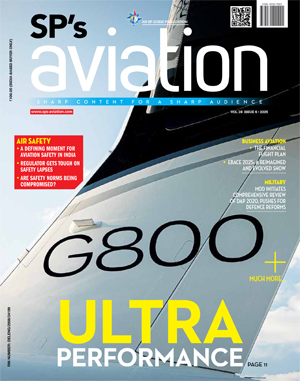INDIAN ARMED FORCES CHIEFS ON OUR RELENTLESS AND FOCUSED PUBLISHING EFFORTS

The insightful articles, inspiring narrations and analytical perspectives presented by the Editorial Team, establish an alluring connect with the reader. My compliments and best wishes to SP Guide Publications.

"Over the past 60 years, the growth of SP Guide Publications has mirrored the rising stature of Indian Navy. Its well-researched and informative magazines on Defence and Aerospace sector have served to shape an educated opinion of our military personnel, policy makers and the public alike. I wish SP's Publication team continued success, fair winds and following seas in all future endeavour!"

Since, its inception in 1964, SP Guide Publications has consistently demonstrated commitment to high-quality journalism in the aerospace and defence sectors, earning a well-deserved reputation as Asia's largest media house in this domain. I wish SP Guide Publications continued success in its pursuit of excellence.
- The layered Air Defence systems that worked superbly, the key element of Operation Sindoor
- Operation Sindoor | Day 2 DGMOs Briefing
- Operation Sindoor: Resolute yet Restrained
- India's Operation Sindoor Sends a Clear Message to Terror and the World – ‘ZERO TOLERANCE’
- Japan and India set forth a defence cooperation consultancy framework, talks on tank and jet engines
Electric Air Taxis — The Future is Here!
Joby Aviation is aiming to launch commercial service of its eVTOL vehicles in 2025. It has also signed a contract with US Air Force for its electric vehicles to be stationed at US Military Base

The transportation and aviation landscape is transforming and promises to drastically change how we move around in the near future. The electric vertical take-off and landing (eVTOL) vehicles and Advanced Air Mobility (AAM) are pushing the drive to change with various companies and disruptive technologies coming up.
Having started in 2007, Joby Aviation has been growing steadily through the years to eventually take-off for a smooth flight with its recent share of developments. Joby Aviation, a Californiabased company developing electric vertical take-off and landing (eVTOL) aircraft, recently announced the third extension of its Agility Prime contract with the United States Air Force (USAF). The $55 million contract extension brings the total potential value of Joby’s current contract with the Air Force up to $131 million.
As part of the agreement, Joby will deliver and operate up to nine of its five-seat, low-noise, zero operating emissions aircraft, providing the Air Force and other federal agencies with firsthand experience of the performance of Joby’s aircraft and its potential applications. The first two aircraft are expected to be delivered to Edwards Air Force Base, California, by early 2024, and will be used to demonstrate a range of potential logistics use cases, including cargo and passenger transportation. In doing so, they are expected to become the first electric air taxis to be stationed at a US military base. The announcement comes days after four Air Force pilots, hosted by Joby at its manufacturing facility in Marina, California, became the first Air Force personnel to fly an eVTOL as sole pilot-in-command through the full flight envelope, including transition from vertical to wingborne flight. The flights, which were piloted remotely from the ground, came following completion of classroom-based and simulator training and are part of the Air Force’s comprehensive approach to studying eVTOL aircraft and their potential future role. “This next step of getting Air Force pilots trained and operating Joby aircraft at an Air Force installation is an incredibly important milestone for the programme, providing key insights to actual operations and use case validation for Advanced Air Mobility aircraft,” said Lt Col Tom Meagher, AFWERX Prime Lead. “Additionally, the Joby operations provide an outstanding opportunity for accelerated learning with the other Department of Defense services and government agencies, including NASA (National Aeronautics and Space Administration) and the FAA (Federal Aviation Agency).”
Edwards Air Force Base is the second largest base in the Air Force and has been the site of hundreds of significant aviation “firsts.” It’s where Captain Chuck Yeager and the Bell X-1 first broke the sound barrier on October 14, 1947, the X-15 became the first winged aircraft to fly Mach 4, 5 and 6 and the space shuttle first landed on its initial return from earth’s orbit.
Joby’s partnership with the Department of Defense began more than five years ago and provides the company with access to testing facilities, early operational experience for government firsthand experience of the performance of Joby’s aircraft and its potential applications. The first two aircraft are expected to be delivered to Edwards Air Force Base, California, by early 2024, and will be used to demonstrate a range of potential logistics use cases, including cargo and passenger transportation. In doing so, they are expected to become the first electric air taxis to be stationed at a US military base.

(RIGHT) JOBY’S ALL-ELECTRIC, VERTICAL TAKE-OFF AND LANDING AIRCRAFT DURING A FLIGHT TEST.
The announcement comes days after four Air Force pilots, hosted by Joby at its manufacturing facility in Marina, California, became the first Air Force personnel to fly an eVTOL as sole pilot-in-command through the full flight envelope, including transition from vertical to wingborne flight. The flights, which were piloted remotely from the ground, came following completion of classroom-based and simulator training and are part of the Air Force’s comprehensive approach to studying eVTOL aircraft and their potential future role.
“This next step of getting Air Force pilots trained and operating Joby aircraft at an Air Force installation is an incredibly important milestone for the programme, providing key insights to actual operations and use case validation for Advanced Air Mobility aircraft,” said Lt Col Tom Meagher, AFWERX Prime Lead. “Additionally, the Joby operations provide an outstanding opportunity for accelerated learning with the other Department of Defense services and government agencies, including NASA (National Aeronautics and Space Administration) and the FAA (Federal Aviation Agency).”
Edwards Air Force Base is the second largest base in the Air Force and has been the site of hundreds of significant aviation “firsts.” It’s where Captain Chuck Yeager and the Bell X-1 first broke the sound barrier on October 14, 1947, the X-15 became the first winged aircraft to fly Mach 4, 5 and 6 and the space shuttle first landed on its initial return from earth’s orbit.
Joby’s partnership with the Department of Defense began more than five years ago and provides the company with access to testing facilities, early operational experience for government customers, as well as a partial offset to its research and development costs. Since the Agility Prime programme was established in 2020, the Army, Navy, Air Force and Marine Corps have all expressed active interest in the capabilities of eVTOL aircraft, with Joby announcing in August 2022 that the Marine Corps would participate in government-directed flight tests and use case exploration, including resupply, personnel transport, and emergency medical response applications.
Recently, Joby also announced the signing of a long-term agreement with Toyota Motor Corporation to supply key powertrain and actuation components for the production of the Company’s aircraft. The agreement builds on the long-standing partnership between Joby and Toyota, which has seen the two companies collaborate on a wide variety of projects to support the production and assembly of the Joby aircraft, including on the design of Joby’s pilot production line in Marina.
The components, designed by Joby and manufactured by Toyota, will be delivered to Joby’s powertrain and electronics manufacturing facility in San Carlos, California, before the finished assemblies are shipped to the Company’s pilot production line in Marina for integration. Intended to prove out scalable tooling and processes at low volumes in advance of aircraft production at full scale, Joby’s Marina facilities were designed with Toyota’s help, leveraging decades of experience delivering reliable, high-quality cars at high volume.
Joby is also working with Toyota subsidiary Aero Asahi on an air taxi shuttle service for Toyota related passengers in Japan. Joby recently announced it has formally applied to the Japan Civil Aviation Bureau (JCAB) to validate its planned Federal Aviation Administration (FAA) aircraft type certification. Toyota is also Joby’s largest external shareholder, having invested around $400 million in the Company.
Joby continues to maintain a strong balance sheet with $978 million in cash and short-term marketable securities at the end of the quarter, excluding approximately $180 million of net proceeds from its public offering. These additional funds are expected to be used to accelerate Joby’s early production, enabling the business to capitalise on near-term revenue opportunities without impacting the funds available to carry the company through to type certification of its eVTOL aircraft, stated Joby as the key financial highlights from the quarter.

Key operating highlights from the quarter, apart from the US Air Force deal, were highlighted as follows by Joby:
- First company-conforming aircraft is nearing completion and is on track to roll out, as planned, in the first half of this year.
- A further three Area Specific Certification Plans (ASCPs) were submitted to the FAA, bringing the total to 11 of 13 ASCPs submitted. Two additional ASCPs were accepted by the FAA.
- Four US Air Force pilots learned to fly the Joby aircraft, becoming the first uniformed personnel to fly a eVTOL aircraft through transition as sole pilot-in-command.
Commenting on the results, JoeBen Bevirt, Founder and CEO, Joby, said: “Already in 2023 we’ve achieved significant milestones in production, testing and funding and I’m incredibly excited about our progress as we move towards our goal of launching commercial service in 2025.
Powered by six electric motors, Joby’s aircraft takes off and lands vertically, expanding the flexibility with which it can serve almost any community. “Flying with us might feel more like getting into an SUV than boarding a plane,” boasts Joby.
Joby began in 2009 with a small team of seven engineers. In 2012, Joby was selected to collaborate with NASA on several groundbreaking electric flight projects, including the X-57 and LEAPtech. After years of subscale testing and analysis, the subscale technology demonstrator flew for the first time, leading to a first full-scale demonstrator in 2017. In 2019, the pre-production prototype began a rigorous flight testing programme. The same year, Toyota became a strategic investor and has deployed dozens of engineers to work shoulder-to-shoulder with our team, lending their expertise on factory layout, manufacturing process development and high-volume production. In 2020, Joby became the first eVTOL company to receive airworthiness approval from the US Air Force. The same year, Joby expanded its partnership with Uber, agreeing to integrate the aerial ridesharing service into the Uber app, and vice versa across all US launch markets. At the same time Uber increased their investment in Joby, helping it acquire the Elevate division, bringing their software tools and commercial launch expertise in house. In 2020 itself, Joby signed the Stage 4 “G-1” certifications basis with the FAA, having received an initial Stage 2 G-1 from the agency in 2019. In 2021, Joby built a second pre-production prototype, completed our first FAA production conformity inspection and officially began the journey towards becoming the first certified eVTOL airline. In 2022, Joby received the Part 135 Air Carrier Certificate, which would allow Joby to operate a commercial air taxi service.
With all this in its bag and the new developments speeding up, Joby Aviation holds a promising future ahead ready to take up the market in both commercial as well as defence segments.





